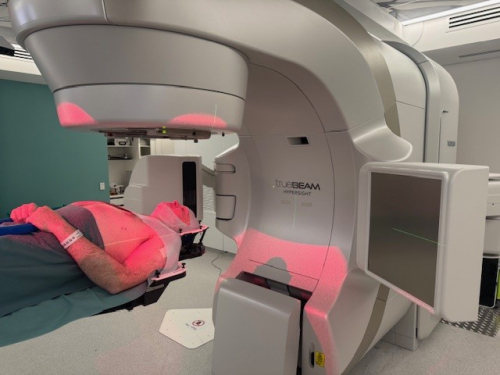Trialling laughing gas for depression

Researchers at The Alfred will trial using laughing gas to treat patients with depression after studies overseas showed promising results.
Nitrous oxide, or laughing gas, is commonly used for sedation and pain relief. Researchers believe it could also target a different type of neural pathway to common antidepressant medication, which could alleviate symptoms for patients with treatment-resistant depression.
The trial, which is a collaboration between Monash Alfred Psychiatry Research Centre (MAPrc) Director Jayashri Kulkarni, and Director of Anaesthesia & Peri-operative Medicine Paul Myles, is currently enrolling participants.
Professor Myles said in studies overseas, patients experienced reduced symptoms of depression long after the effects of the gas had worn off.
“This is a really exciting trial because we already know nitrous oxide is safe to use and has few side effects,” Professor Myles said.
“For people with severe depression, medication can take up to four weeks to work so this could be a great solution to bridge that gap and provide people with more immediate relief.”
Professor Kulkarni said exploring other pathways to treat depression was important.
“Different types of depression affect different areas of the brain, so treatment is not a one size fits all approach. Traditional medication is not effective for some people,” Professor Kulkarni said.
“Advances in psychiatry will come from collaborating widely with other disciplines, which is why it’s great to be working with the department of anaesthesiology on this.”
Trial participants will be required to spend one hour at The Alfred breathing nitrous oxide, once a week for four weeks.
Participants must have a history of clinical depression and be currently on medication, over the age of 18, able to give informed consent, and not acutely suicidal.
For more information on the study, please email MAPrc.


